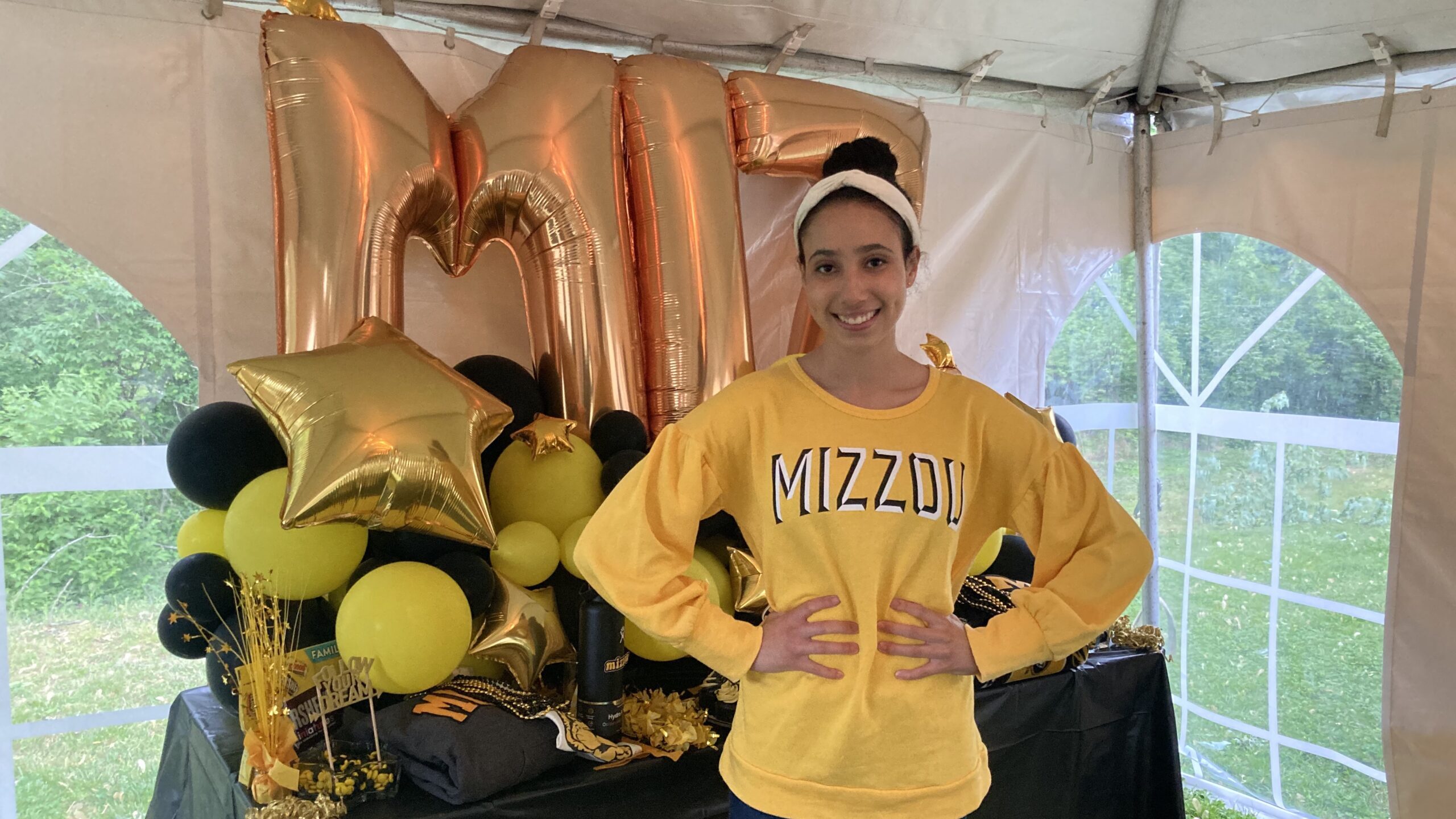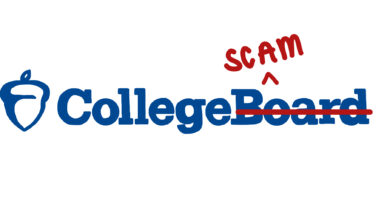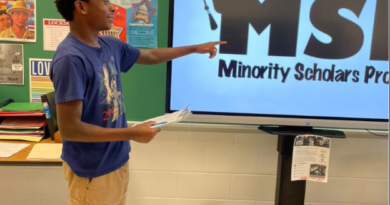Olivia’s Complete College Compendium
The college application process is gruesome; that’s just a fact of life. For kids like me who have fully absorbed the societal expectations that come with living in the academic pressure cooker that is the DMV (and relatively wealthy Montgomery County in particular), the college application process is like the Olympics and getting into your dream school is winning gold.
For the past five years (because I have been researching colleges and mapping out my academic and career goals since eighth grade), I have been working my tail off to ensure I achieved exactly what I wanted in the college admissions game. There are things I did well and other things I should have done differently in hindsight, but now, as I am a senior committed to the University of Missouri with a Stamps Scholarship (a full ride with an enrichment fund for research, artistry, and study abroad) planning to study journalism and political science with a minor in a language, I wanted to share with you an overview of my college journey and how I made one of the most significant decisions of my lifetime. Here’s part one: an overview of my college application journey.
****
To begin with, here is a quick rundown of my resume:
GPA: 4.0 unweighted since eighth grade
SAT Score: 1550 superscore (1540 raw)
ACT: Didn’t take it
Service Hours: 301 (mostly through summer camps, Church service work)
AP Classes through junior year: APUSH, AP US Government and Politics, AP Spanish, AP Seminar, AP Comp Gov, AP Physics 1, AP English Language and Composition, AP World History (I scored a 4 or 5 on all these exams)
AP Classes I’m taking this year: AP Research, AP English Literature and Composition, AP AB Calc (won’t be taking the exam for this one), AP Art History, AP Macro/Microeconomics
Other classes: Tech, Journalism for three years, Darkroom Photography, Dance, Orchestra, Health over the summer, Honors Bio, Honors English 9/10
Extracurriculars and Leadership:
| Extracurricular | Time Spent in Activity | Leadership Experience |
| It’s Academic | 4 years | Captain for 2 years |
| Blake Beat Newspaper | 3 years | News editor for 1 year, editor-in-chief for 1 year |
| Youth Creating Change (nationwide social justice org) | 3 years | Outreach coordinator for two years, president for a year |
| Model United Nations | 3 years | Co-president for 1 year |
| Dance | 2 years | N/A |
| Orchestra | 1 year | N/A |
| Honor Societies | 3 years | N/A |
| Youth Advocacy Club | 1 year | Minority Gala Committee Chair |
| Girl Scouts | Since Kindergarten | N/A |
| Beck and Call Blog | 2 years | Founder, editor-in-chief |
| The New Journalism Collective | 1 year | Managing editor |
Honors and Awards: Various awards for creative writing; Honorable Mention/Outstanding Delegate/Best Delegate for Model UN; Girl Scout Bronze/Silver/Gold Award; Carson Scholars Fund Award Recipient; Al Neuharth Free Spirit and Journalism Conference Free Spirit; HOBY attendee; Yale Young Global Scholars attendee; Greenblatt Award for Excellence in Social Studies
Work experience: Assistant dance teacher for a year, creative consultant for an educational startup
****
I did a lot during my four years at Blake, and I wanted to do even more. However, I realized come application time that trying to get involved in so many different extracurricular activities was biting off more than I could chew. My advice to underclassmen would be to pick a few (really, no more than four) activities that you are super passionate about and devote all your extracurricular time and energy to being the best you can be at those activities. Whether it’s something sports-oriented or arts-related or academic or a combination, pour your heart and soul into those activities. Hone your skills, execute passion projects in those areas, and try to obtain awards and/or leadership positions in those activities.
I’ve learned colleges really care about passion, commitment to the activity and your community, and growth. Playing video games all day for four years could be your thing and that would be totally fine as long as you took steps to show application of that passion to the wider world. For example, if you really love playing video games, maybe channel that passion for gaming into community service by setting up a gaming camp for underprivileged kids.
In hindsight, I really wish I had focused on fewer activities so I didn’t feel so overextended and exhausted later on.
That being said, I’m also glad I challenged myself. I’ve never been the most adept at STEM subjects, and yet I pushed myself to take AP Physics junior year. Despite the crazy way the school year ended, I studied so much for that exam and managed to come away with a 4 on the AP exam. Colleges like to see that kind of course rigor and like to know you’re challenging yourself academically.
I had to put in the same amount of work for my SAT score: I devoted a year and a half of study time to SAT math (I started preparing for the test in ninth grade and took my final administration winter of my junior year). On long car rides, Saturday mornings, and late at night while also watching TV, I cranked out math problems and practice tests. Eventually, I got my score to where I wanted it to be without having to pay thousands of dollars for a fancy prep course.
Now, I’m not saying you need a 1500+ SAT score to be admitted to college: look at the SAT score quartiles for the schools you want to apply to and shoot for a score in the top 75% of those schools’ scores.
And, though I was involved in almost ten extracurricular activities, I also liked that I had a diverse range of experiences to draw from when it came to writing all of those pesky supplemental essays. I found myself reflecting on what I had done over the past four years in my supplementals. The supplemental essays prompted me to discuss topics like community service, my identity, how my community influenced my identity, why one extracurricular activity was more significant than others, significant educational experiences, my icons, and of course why I liked the colleges I was applying to.
Now, for my Common App essay, I wrote about a significant journalism experience I had. I got a lot of conflicting guidance from friends and family members about what I should write about in my Common App essay, but I ended up submitting the essay I liked best, the essay I was most proud of and the one I felt did the best job of showcasing what kind of college student and future journalist I could be. I imbued a lot of passion in my essay because I wrote about something I was passionate about.
My advice, when it comes to writing essays, is threefold. One, start writing drafts of essays early! From year to year, Common Application, Coalition Application (which I also used), and college-specific supplemental essay prompts barely change. That means you can look at the prompts now as underclassmen or juniors and start brainstorming potential topics or even fleshing out full drafts. Realistically, you are not going to have your final Common Application essay draft by the end of your sophomore year; you still have so much development to do and life to live. So many other salient, life-transforming things can happen to you in the span of two years; however, it’s always best to be prepared—especially when you become consumed by actually filling out the various and sundry boxes of information on the applications, requesting letters of recommendation and transcripts, and regular schoolwork come fall of your senior year.
Secondly, trust yourself! You know yourself best and the college application process truly is a reflection of you, not of your parents, friends, coaches, religious leaders, etc. If you feel in your gut that that one essay draft or topic is the one, go with it. That being said, still put stock in your trusted advisers’ comments and critiques. Your first essay draft is not going to be perfect.
And finally, when it comes to essays, put your best self forward. The college essay writing process can really take a toll on you. The essay prompts force you to do a lot of introspection and self-reflection, and that can be really scary. For those who don’t have an easy time “bragging” about themselves, or really just acknowledging their accomplishments, the college essay process can also be draining. When those facts of the college essay writing process coincide, you might feel tempted to hold back, conceal your truth or parts of your personality, or even degrade yourself. You have to fight those instincts and put your insecurities aside. In a pool of highly accomplished and competitive applicants, the essays can be the only places where you can distinguish yourself from everyone else. Or, if you feel like your GPA and test scores aren’t all that impressive, you can make yourself truly shine and look attractive if you write standout essays. You really want to sell yourself in your essays; show (don’t tell) the college admissions officers why you would be a perfect candidate for admission. Choose anecdotes and snippets from your life where you put your best traits on display, or choose to convey a really personal and meaningful life lesson through your essay. It’s commonly said that you don’t have to have cured cancer to write an impressive essay and that’s true. Even if you feel like you don’t have a super exciting topic to write about (which you most likely do if you really think about it), and even if you feel compelled to write about a setback, still do your best to showcase as many positive traits as possible, like intellectual curiosity, resilience, or a passion for helping others.
Another obviously crucial part of the college application process is actually choosing how many and which schools to apply to. I applied to 10 schools, and felt that was the perfect number for me. The Princeton Review recommends students apply to seven to nine schools, but some students feel they need to apply to more than nine schools to be safe. You do want to be sure that you apply to enough schools to allow you to have a mix of safety, target, and reach schools. Safety schools are schools you’re sure you can get into: they have higher acceptance rates and your GPA and test scores are well within the average-high range. Target schools are schools you’re likely to get into: their acceptance rates are a little lower and your statistics are within the average range. Reach schools are schools that are difficult for everyone to get into: they’re usually more prestigious, “name brand” schools and even if you have a super high GPA and high test scores, you’re not guaranteed admission. Which schools you can consider safety, target, and reach schools will depend on your statistics and extracurriculars. For a little more guidance on this, talk to Mr. Marshall in the College and Career Center. Even if you have great extracurriculars, tons of awards, a perfect 4.0, and a sky high SAT/ACT score, sometimes college admissions officers will be looking for a specific kind of student during one admissions cycle and you just may not fit the bill. The college admissions process can truly be somewhat of a lottery.
I ended up applying to University of Maryland-College Park, University of Texas at Austin, University of Chicago, University of Missouri at Columbia, Northwestern University, Northeastern University, University of North Carolina Chapel Hill, Duke University, Syracuse University, and Emory University.
I chose to apply to those schools because they had great reputations (though name recognition isn’t everything), great programs for my desired majors (journalism and political science or public policy), great internship connections/opportunities, were far enough away from home (with the exception of UMD), and had the opportunity for me to earn merit scholarships (with the exception of Northwestern). Renowned journalism and/or public policy programs and the offer of merit aid were the most attractive features of each of these colleges. I wanted to be set up for success post-grad, and I also didn’t want to come away from undergrad with thousands of dollars in debt.
Overall, that was my college application experience! It is important to note that you should take everything I am saying with a grain of salt. This is just a reflection of my experiences; everyone’s path to higher education is going to look different. I’ll let you know how I made my decision in my next article!




